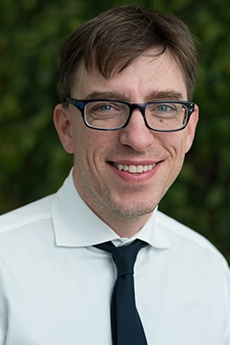Multi-Disciplinary and Collaborative Research
Multi-Disciplinary and Collaborative Research
Much of our department’s research doesn’t fit within the confines of just Computer Science -- we are exploring how CS interacts with and enhances other fields from medicine to public policy. Our work in this area tries to answer questions such as:
- How can we use computers to enhance healthcare?
- How can machine learning teach us about digital media’s influence on public opinion?
Research Highlight
Professor James Hahn
Professor James Hahn and the Institute for Computer Graphics are promoting interdisciplinary research and education to solve problems in healthcare using innovative digital solutions. The Institute serves as a focal point on the research interests of its members and the resources of the Institute. The members of the Institute come from a variety of departments including Computer Science, Obstetrics and Gynecology, Anesthesiology and Critical Care Medicine, Medicine, Radiology, Surgery, Statistics, Mechanical and Aerospace Engineering, Pediatrics, Psychology, Psychiatry, Nursing, Exercise and Nutrition Sciences, and Pathology. Funding comes primarily from several prestigious NIH R01 grants. One of the major roles of the Institute is the running of the Motion Capture and Analysis Laboratory (MOCA), which houses the Vicon optical motion capture system as well as the instrument that was developed through the National Science Foundation Major Research Instrumentation Grant (NSF MRI).
IDDP and D-TAIS Programs
CS faculty are involved in several cross-department and cross-university initiatives exploring how Machine Learning and Artificial Intelligence interact with our world. The Institute for Data, Democracy, and Politics brings together faculty from public policy, engineering, and media and public affairs to study how to help the public, journalists, and policymakers understand digital media’s influence on public dialogue and opinion, and to develop sound solutions to disinformation and other ills that arise in these spaces.
CS faculty are also working closely with partners in the EMSE department on an NSF-funded PhD fellowship program for Designing Trustworthy AI Systems. This is a doctoral program that emphasizes impact, cross-disciplinarity, stakeholder engagement, and close collaboration with faculty experts spanning technical and application-specific aspects of trustworthy AI.
Faculty
Associate Professor
Learn More About Professor Park
Associate Professor
Learn More About Professor Wei











